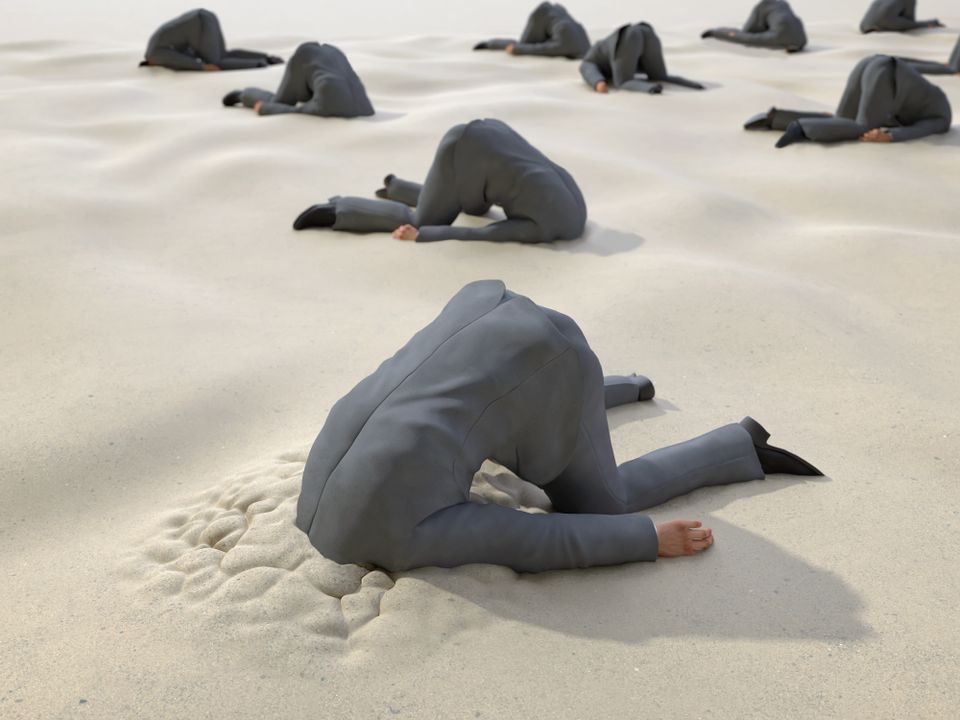Multitasking and Overworking Does Not Increase Productivity

“I can do the work of a year in 9 months, but not in 12” — J. P. Morgan
Ever year a survey called The National College Health Assessment is carried out nationwide.
Year after year roughly 45% of students report being depressed to the point that it’s difficult to function, and 80% report feeling overwhelmed.
Not exactly American Pie 2…
While we’re learning more and more about what depression is, something strange seems to be happening. We are getting more and more depressed, and at younger ages.
In the 1960s, the average age for the onset of depression was 29. Today the average age for the onset of depression is 14.
A lot of this, I believe, is down to societies new obsession with productivity.
Doing more in less time, so we can do more in the time we save seems like a wonderful idea. And it is if you don’t mind being depressed.
When we have too much to do, we feel stressed, and over time, if this stress persists, it leads to depression.
But not just depression; stress also weakens our immune system and causes us to lose our levels of creativity. We get sick and start thinking narrowly as opposed to broadly. Handy if there’s a lion in front of you, not so handy otherwise.
As counterintuitive as it sounds, the real way to create sustaining productivity is to do less rather than more. To simplify.
Multitasking Is Dead
Professor Daniel Kahneman from Princeton, a Nobel prize winner in economics, conducted a study wanting to understand the emotional experiences of women (the results apply as much to men).
He measured women’s emotional experiences when they were at work, when they were having lunch, when they were with their romantic partners, when they were with their children, when they were shopping, working, leisure, etc.
What Kahneman found, to everyone’s surprise, was that these women did not particularly enjoy spending time with their children.
They probed further and discovered that it wasn’t the fact that these women did not love their kids. For most of these women, their children were the most meaningful part of their lives…
It was that these women were not truly with their kids.
They were physically present but at the same time they were on the phone or doing email, or thinking about what they did earlier or what they had to do later.
So while they were physically present, they were not psychologically present. They may have enjoyed talking to their friends or doing emails or spending time with their children but when all of these things came together, it was too much of a good thing.
Quantity affects quality.
“Think about the following analogy. Think about your favourite piece of music. You’re listening to Whitney Houston’s I will always Love you. And then you rate it on a scale of 1 to 10, and you give it a straight 10. And then you listen to your second most favourite piece of music. The chorus piece from Beethoven’s ninth and once again you rate it on a scale of 1 to 10, and it’s a 9.5. And then for maximal effect, you play them together. And what do you get? A 19.5, right? No, not a 10, not even a 5. It’s noise! That’s modern life for you.” — Dr. Tal Ben-Shahar, Positive Psychologist
The golden mantra of productivity:
The days of multitasking are dead. If you’re still not convinced, check out these two studies:
1) Distractions Make You Dumb
In a study conducted at the University of London found that people who had their email on while doing work that required concentration lost an equivalent to 10 IQ points. If you haven’t slept for 36 hours, and you’ve been up all night, that’s 10 IQ points. If you smoke marijuana, you lose 4 IQ points.
2) The Power Of Doing Less
Leslie Perlow, professor at Harvard Business School showed that knowledge workers who took as little as an hour and a half a day of focus time (time without distractions) not only were happier at work, but were more creative and productive overall than those who worked regular hours.
The Stress Solution
The heading of this section is a little misleading because stress isn’t the problem. Stress is often good for us.
Lifting weights causes us stress and as a result it makes us stronger. Getting out of our comfort pits, causes us stress too and that makes us more confident and resilient.
Stress is not the problem. Lack of recovery is the problem.
The problems come when we lift weights without taking a break. Or work hard without getting sufficient sleep. Input is just as important as output. Expansion is just as important as contraction.
Successful people experience stress, but they recover.
What we need to do is make recovery ritualised. We need to plan our to-not-do lists, as much as our to-do lists.
Ritualized Recovery
There are three levels of recovery that we need to pay particular attention to:
1) Micro – 15 minutes
Focus time as we’ve seen is more beneficial for productivity and overall wellbeing. Studies also show that when we’re learning a skill, taking breaks accelerates the process.
2) Mezzo – sleep or day off
Sleep is a great investment. It makes you more productive, and more creative. People who take a day off often get more done overall.
3) Macro – week/months off
When we work at something for a long time, even if we enjoy it, we get sick of it and crave escape.
By taking systematic holidays you’ll not only flush the stress out of your system, but you’ll also start to focus more on the things you like about your work, rather than what you don’t.
Ritualise your recovery, turn off your email and avoid multitasking like the plague. You’ll get more done, in less time, and you’ll be happier, healthier and more creative.